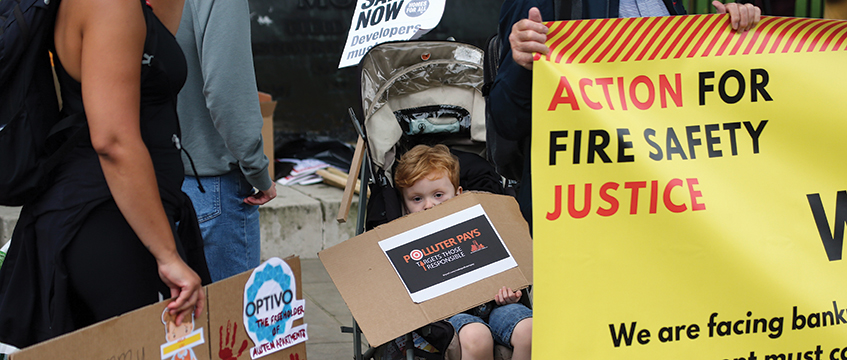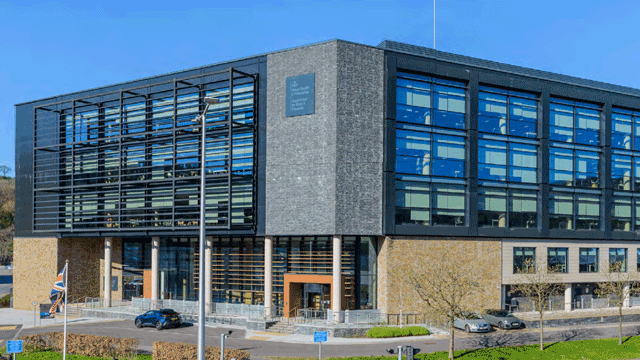Judges at the Supreme Court ruled today in a complex case that should bring clarity to many ongoing building safety dispute in the wake of the 2017 Grenfell Tower fire.
The case, URS Corporation Ltd v BDW Trading Ltd, is so involved that seven Supreme Court justices were called on. BDW, which won the case, is a major property developer that owns brands including Barratt Homes and David Wilson Homes. URS provides consultant engineering services.
“On 14 June 2017, Grenfell Tower in London was engulfed in flames and 72 residents lost their lives. The main reason for the tragedy was the use of unsafe cladding on the outside of the
building,” Supreme Court judge Lord Sales said today, introducing the judgment.
“The government encouraged developers to carry out any necessary remedial work for safety defects discovered and this was reinforced by the imposition of legal liabilities on developers by the Building Safety Act 2022. It is against that background that the dispute between developers and design engineers, that this appeal is concerned with, has arisen.”
During post-Grenfell investigations in 2019, BDW discovered design defects in two sets of multiple high-rise residential building developments that it had developed and URS had provided the structural designs.
BDW did remedial work, and in 2020 sued URS for negligence. This led to today’s important test case ruling into negligence and the interpretation of the BSA post-Grenfell.
Lawyers are currently analysing the long and involved judgment which provides, as well as ruling, a large amount of guidance. However, Julia Tobbell, a partner at law firm Forsters, said it is good news for proactive developers.
The judges found that a developer “can both owe a duty (to the homeowner) and be owed a duty (by the contractor),” she said. “This reading gives the DPA far more teeth.”
“This case will be a relief to proactive developers who took on remediation costs even where they had sold the building to third parties. Although their decision to voluntarily take on repairs may be a factor in assessing reasonableness of mitigation, it does not bar them in principle from being able to recover from negligent contractors,” she said.
Stuart Premble, a partner at Mills & Reeve, said: “I think the decision is the one that most observers expected, especially with the focus on public safety following the Grenfell tragedy.”
“Some people might be disappointed that the Supreme Court ducked the question of whether Pirelli v Oscar Faber, which was criticised in the Court of Appeal, is still good law,” he added.
Law firm Osborne Clarke acted for BDW in the dispute. Rob Horne, head of construction disputes, explained the judgment.
“For residential developers there is now significantly more clarity over the full effect of the retrospective limitation period introduced by the Building Safety Act. Ultimately, the aim of the BSA was to ensure that safety failures are properly addressed and that those responsible bear the costs. This case furthers that aim by ensuring that developers have a clearer path to recover funds from designers and constructors who designed and built unsafe buildings,” he said.
“There is significant commentary in the judgment supporting a proactive approach towards remedying defects, particularly as they relate to health and safety. The Supreme Court has commented that proactive developers who, in effect, do the right thing in effecting necessary safety works, should not be penalised by having rights of recovery barred. Such developers are able to recover the remedial costs from those most responsible for the safety defects in question.”
“This is further supported by the clarification that getting on with remedial work without the formalities of judgment or settlement will not prevent a claim in contribution. As always though, any claim by a developer would still have to show it acted reasonably in the steps it took to deal with the defects.”
A spokesperson from Barratt Redrow, the new name for BDW following the combination Barratt and Redrow, said: “We are pleased that in this landmark case, the Supreme Court has dismissed the appeal on all grounds and clarified the responsibility of wider companies for remediating defects in developments they were involved in building,” the spokesperson said.
“Whether remediation is required because of defects in design, supply of inappropriate products or workmanship issues, it is vital that the companies who played a part step up and put things right, as we have done with the developments in this case.”
URS Corporation Ltd v BDW Trading Ltd
Supreme Court (Lord Lloyd-Jones, Lord Briggs, Lord Sales, Lord Hamblen, Lord Leggatt, Lord Burrows and Lord Richards)
21 May 2025
Image © Tayfun Salci/ZUMA Wire/Shutterstock
Follow Estates Gazette











